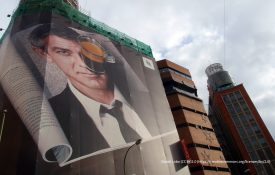-
Why children become bullies at school
When RubySam Youngz was singled out by a bully at the age of 10 in her last year of primary school, she felt isolated and confused. She’d just moved with her family from England to Wales and the bully honed in on her accent. They then started mocking her appearance. “Nothing really made sense to me,” she says. “I’m in a new place, I don’t really know anyone, no one likes me, and I really do not know why.” Youngz says the relentless bullying, which continued through secondary school, had a knock-on effect in all areas of her life, and she took up smoking and drinking in an attempt to cope.
-

New Research From Psychological Science
A sample of research exploring reciprocity in early development and links between intentional forgetting and working memory resources.
-

Scientists Identify a Personality Feature That Could Predict How Often You Exercise
Individuals who make concrete plans to meet their goals may engage in more physical activity, including visits to the gym, compared to those who don’t plan quite so far ahead, research shows.
-

Why George Clooney Made Coffee Sexy
In the marketing world, pairing a star with a brand imbues that brand with the celebrity’s attributes.
-
APS Fellow Among Psychological Scientists Named CASBS Fellows
Four psychological scientists, including APS Fellow Su-Ling Yeh of National Taiwan University, are among 37 scholars named to the 2019-2020 class of fellows at The Center for Advanced Study in the Behavioral Sciences (CASBS) at Stanford University. The CASBS fellowship brings together scholars for a year of reflection and academic interaction. The Center strives to bring diverse thinkers together to produce collective knowledge and transformative outcomes that could not be achieved independently.
-
How to increase access to gifted programs for low-income and black and Latino children
Many of the public school gifted and talented programs that serve high-ability students don’t reflect the diversity of their communities. New York City, with roughly 1.1 million students, is an extreme example. While roughly 4 in 6 of its kindergartners are black or Latino, those children account for only about about 1 in 6 of all public school students identified as gifted and talented.Concerns about this underrepresentation recently led a School Diversity Advisory Group appointed by Mayor Bill de Blasio to recommend that the city’s school system end all gifted and talented programs in its elementary and middle schools.

